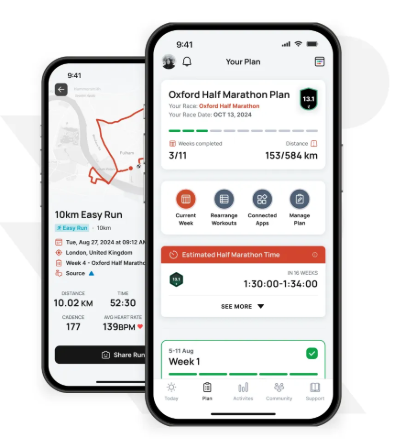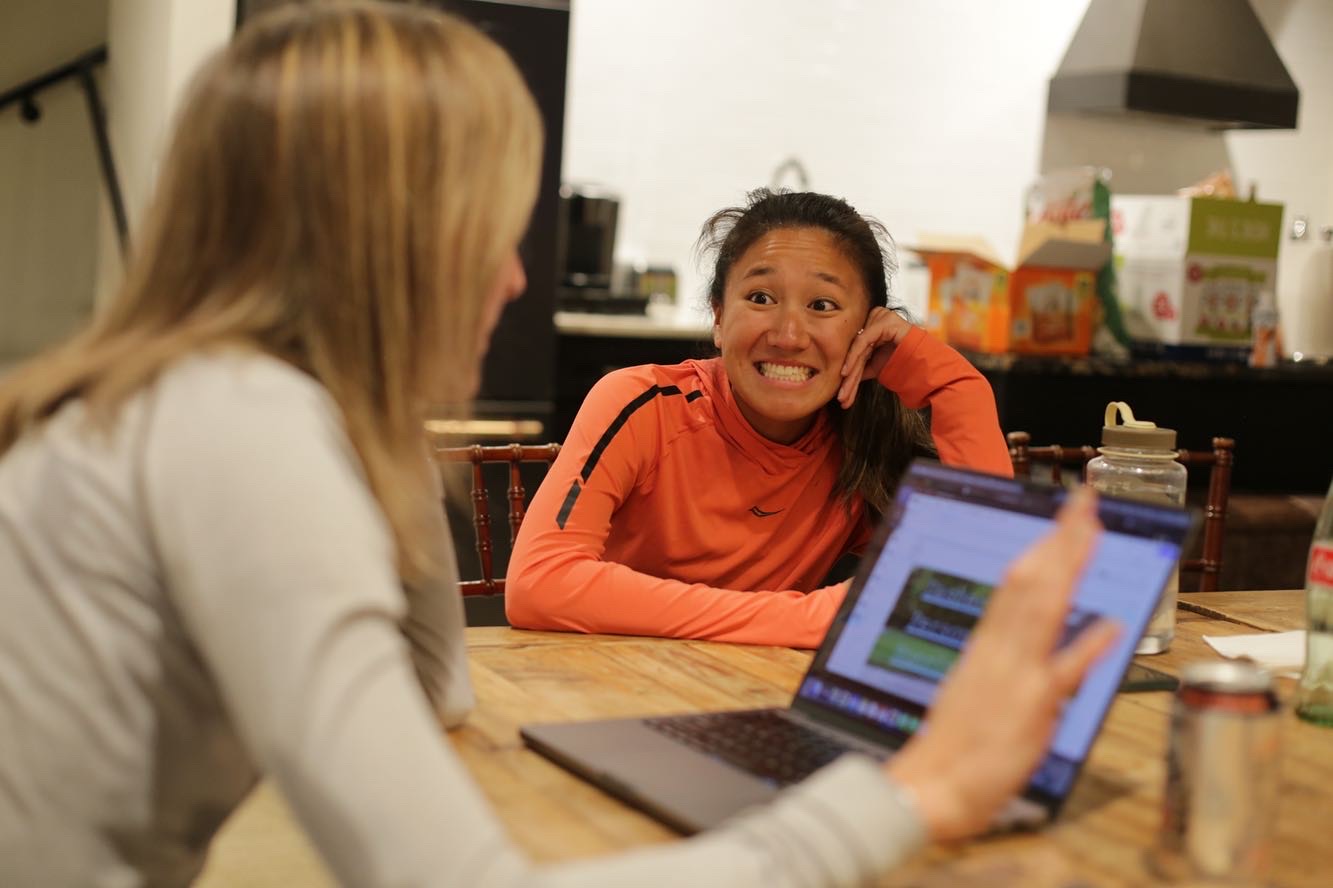A deeper look at how AI-powered running apps can be more harmful than helpful.
Picture this: You’re inspired to start running — maybe a friend gets into the sport, or you cheer on strangers at a local race. Either way, something clicks and you think to yourself, “I want to do this”.

But where do you start?
Like many newer runners, maybe you grab your phone and download an app like Runna, Strava, or Garmin Connect. These AI running apps promise optimized plans and data-driven insights. All you have to do is choose a distance and a goal and, ta da, your training plan awaits!
But there’s a catch. If you’re new to running, you might not have a clear sense of what a realistic goal looks like. That can lead you to follow a plan with too much intensity, or pacing that’s simply too fast for where you’re at — leaving you, at best, frustrated and, at worst, injured.
Beyond Injuries: What AI Running Apps Miss
This disconnect between what an app prescribes and what your body is ready for isn’t hypothetical — it’s real. And it’s something I hear often from athletes who come to me after getting injured or feeling burnt out. Many of them started with the best of intentions, excited to follow a plan and see progress. But over time, they began to notice something wasn’t quite right.
The experiences they’ve shared with me speaks volumes:
- “I felt that the training was either very mild or incredibly intense. No in between.”
- “I pushed myself too hard, too fast.”
- “I found that some of the plans progressed too quickly for me.”
So where does that leave these runners?
Too often, it leaves them frustrated, injured, and wondering what they did wrong. In reality, these runners were just following the plan they were given. They did what the app told them to do. But the app didn’t know anything about them beyond a goal time or a goal distance. It didn’t know their background, stress levels, family commitments, or how they were feeling on any given day.
The Reason Personalized Coaching Wins
For many runners, that experience becomes the turning point — the moment they realize they don’t just need a plan, they need a plan that’s right for them. That’s when they choose to work with a coach — not for a cookie-cutter schedule, but for a personalized approach that adapts to their needs.
Working with a coach can help runners:
- Set realistic, achievable goals
- Adjust their training when life gets busy
- Know when to push — and when to pull back
Whether it’s navigating a missed run, working through a tough workout, managing fatigue, or addressing a niggle before it turns into an injury, having a coach means having someone who sees the whole picture — not just the data, but the person behind it.
Because while metrics like pace, distance, and heart rate can tell part of the story, they don’t capture everything. They can’t pick up on doubt, fatigue, or the mental battles an athlete might be waging with themselves — factors that can impact a run just as much, if not more, than the numbers on a watch.

Why Runners Are Ditching the AI Apps for 1:1 Coaches
That’s where real, two-way conversations become invaluable. Having someone you can turn to — to ask questions, voice concerns, and to openly share what you’re thinking and feeling in real time becomes a powerful form of qualitative data that no algorithm can replicate.
Anyone who’s ever read the ‘Athlete Intelligence’ on their Strava run knows that the feedback from AI often falls flat or is one-dimensional. It simply cannot compare to the feedback a coach can provide, whether it’s through text, email, or by hopping on a call and actually hearing their voice.
At the end of the day, running is personal — and your training should be, too. While AI-powered running apps can offer some semblance of personalization, they can’t replace the insight, flexibility, and support that come from working with a coach who understands you as a whole person. Your life isn’t a static spreadsheet, and neither should your training plan.
- Where an app sees numbers, a coach sees nuance.
- Where an app pushes you to stick to the plan, a coach helps you adapt the plan.
- Where an app reacts, a coach anticipates.
Next Steps for Faster, Injury-Free Running
Whether you’re a beginner taking your first steps into running, aiming for a Boston Marathon qualifying time, or dipping your toes into the ultra running world, Team RunRun has a coach for you. With over 200 coaches at every experience and price level, let us help you avoid the pitfalls of AI running apps. View our coaches here and get started today!

Elaina Raponi is a coach with Team RunRun based in Kingston, Ontario. Elaina loves helping athletes of all abilities and experiences achieve their goals, while finding confidence and joy in the process!
